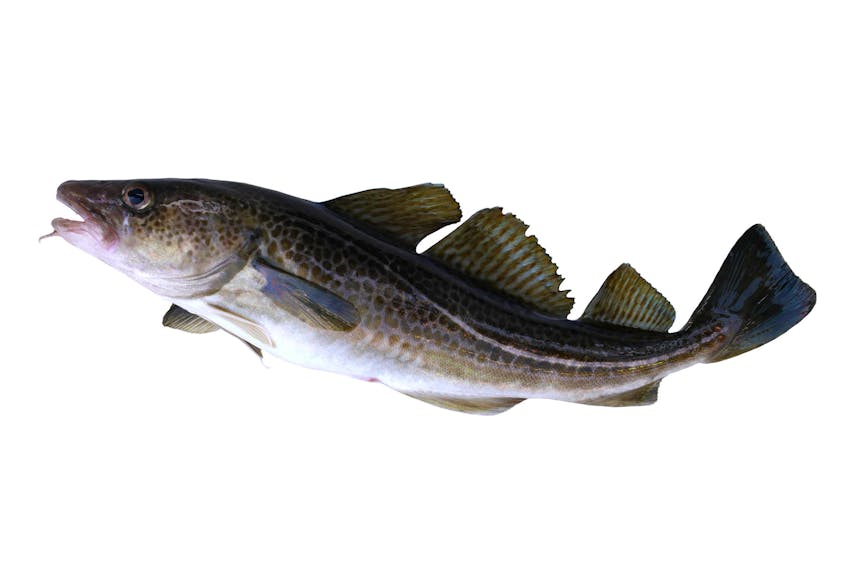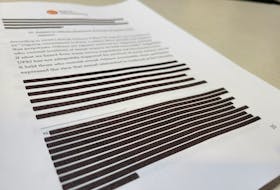Paul Smith in his Telegram piece “Fish processors want you to stop killing their cod” (April 21) falls victim to the old adage, “don’t let the facts get the way of a good diatribe.”
Instead of dealing with the issue — unknown removals in the cod fishery, he thinks the association that represents producers in the province does not have the right to speak. After all, he says, the fish ain’t ours.
Point taken. But let’s consider a few more facts, in what appears to have become the great debate of 2018: whether N.L. should have an unmonitored recreational northern cod fishery, in the face of declining stocks and pending cuts to the commercial fishery.
First, the Association of Seafood Producers (ASP) is not advocating for the closure of the recreational fishery because we own the fish.
Smith is right, we don’t. But neither does he. It is a common property resource, owned by “everyone.” But he might also acknowledge with limited entry fisheries policies, for harvesters and plants, people make investments on the basis of predicable licensed access, and those investments are considerable. Good public policy wants to ensure that we are all served by having regulated fisheries in this way. N.L. benefits from a commercial fishery, or at least we keep saying its why we’re here.
Instead, we are speaking out on the recreational fishery because the northern cod biomass is down 30 per cent, below the level it was at in 1992, and yet DFO says, and here I quote their technical briefing powerpoint of March 23, “Removals from the recreational fishery are unknown.” Smith can check with DFO if he likes, but I was citing their documents.
Second, yes, ASP is an industry trade association in the fishery, representing the interests of the processing sector. Despite Smith’s insinuations, organizations like ours, and citizens like him, are free to contribute to questions of public policy and debate in the fishery. Just as we have our interests, by the logic that says we are comprised, so is Smith: he’s defending his right to fish (though he later calls it a privilege, and I would agree on the latter interpretation. And even if the collective “we” all own it, it does not mean we get to abuse it, a point he made as well).
Third, but let’s do away with the nonsense of a subsistence fishery. It is not subsistence for individuals, nor communities. Rural N.L. was not built on the recreational fishery, and it will not survive on it.
No one is starving because they can’t catch a cod or put a tank of gas in a skiff to get out to fish. It is a great privilege, inherent to our culture, and I acknowledge, important to the tourism industry.
Fourth, our issue is — and it should be his — sustainability, both economic and environmental. We are expecting the commercial fishery to take a cut this year, and yet, there is another parallel fishery with ineffective monitoring, with unknown removals. And the stock is down, and short term prospects are poor.
Those are our points.
And of course, yes, we process fish for profit. Pick your chins off the floor.
That’s how homes, trucks, boats and groceries get bought. Profit is not bad word, not for plants nor fish harvesters. We all need food, but no one asks grocery stories to run on break-even or a loss. (They wouldn’t be around long if they did, and then where would we be?) That does not mean we are not legitimate stakeholders in the fishery or in the province. Newfoundland and Labrador seafood processors do not have to go to the back of the line for anyone. The public square is open to us, just as it is to individuals like Smith.
It is time we get over the history that some people — perhaps not him — so desperately cling to, like telling your kids there are boogeymen under the bed. We should recognize the contribution of both the N.L. processing sector and the N.L. harvesters who, together, make this business run, in good times and in bad. We pay out millions in fish and plant payroll, and provide the world with a quality, healthy protein.
So when the commercial industry is asked to cut back, with the consequences: less fish bought, less wages paid, less of a contribution to provincial GDP, etc., don’t worry about whether Tom, Dick, or Betty could catch on a cod on Saturday. Ask yourself what happened to the commercial fishery, when the resource was declining again, still in the Critical Zone, with poor short-term prospects, and then, you might wish ASP and others had something to say, before it was too late.
Because until I said we should ban the recreational fishery, too many of us appeared immune to the reality that we are back to 1992. Did Smith write on that?
Perhaps it’s time for that national inquiry into Atlantic Canadian fisheries after all. And while Smith might take issue, I’ll add my two cents there, too. Perhaps by then we’ll be on the same page and can share a lift to the hearings.
But I’m not waiting to get my piece in. If we are to have commercial and recreational fisheries, let’s be sure they are conducted on the basis of the best science, including science about natural mortality, seals, ecosystem change, and all fishing mortality.
Derek Butler
Association of Seafood Producers









